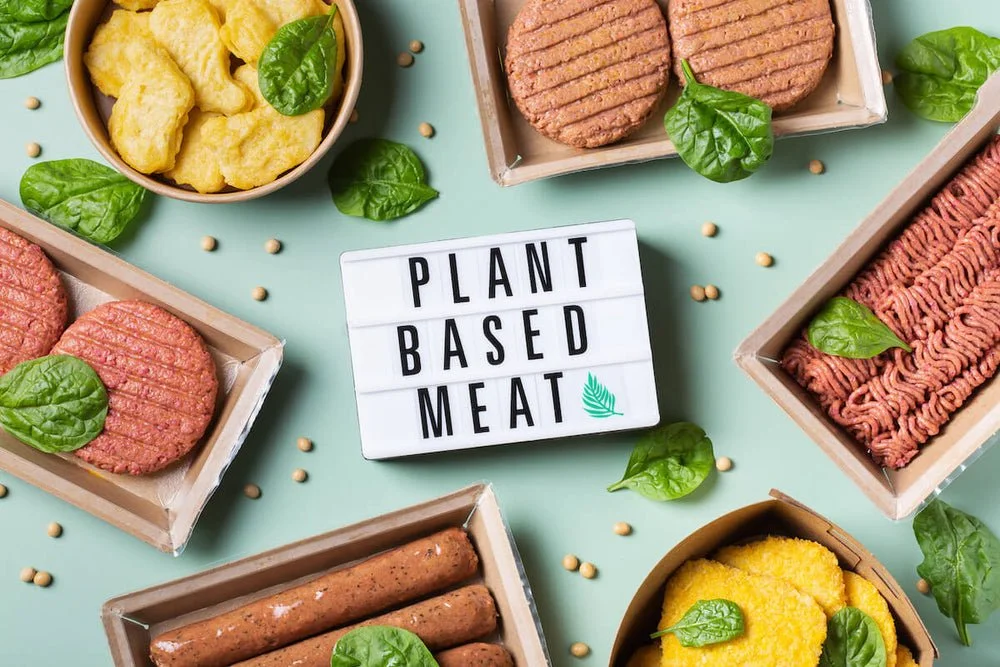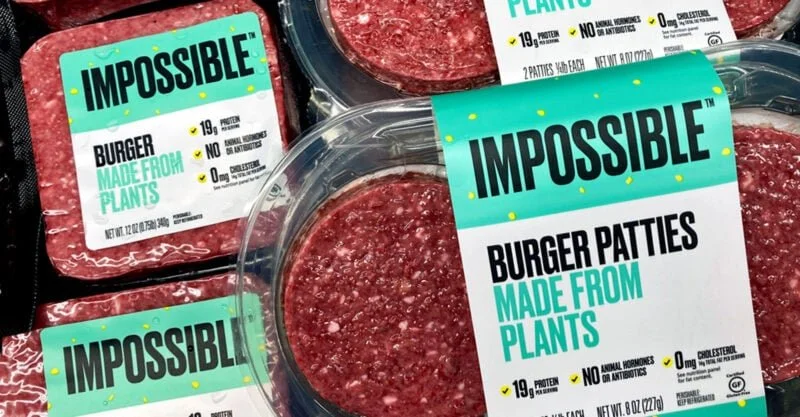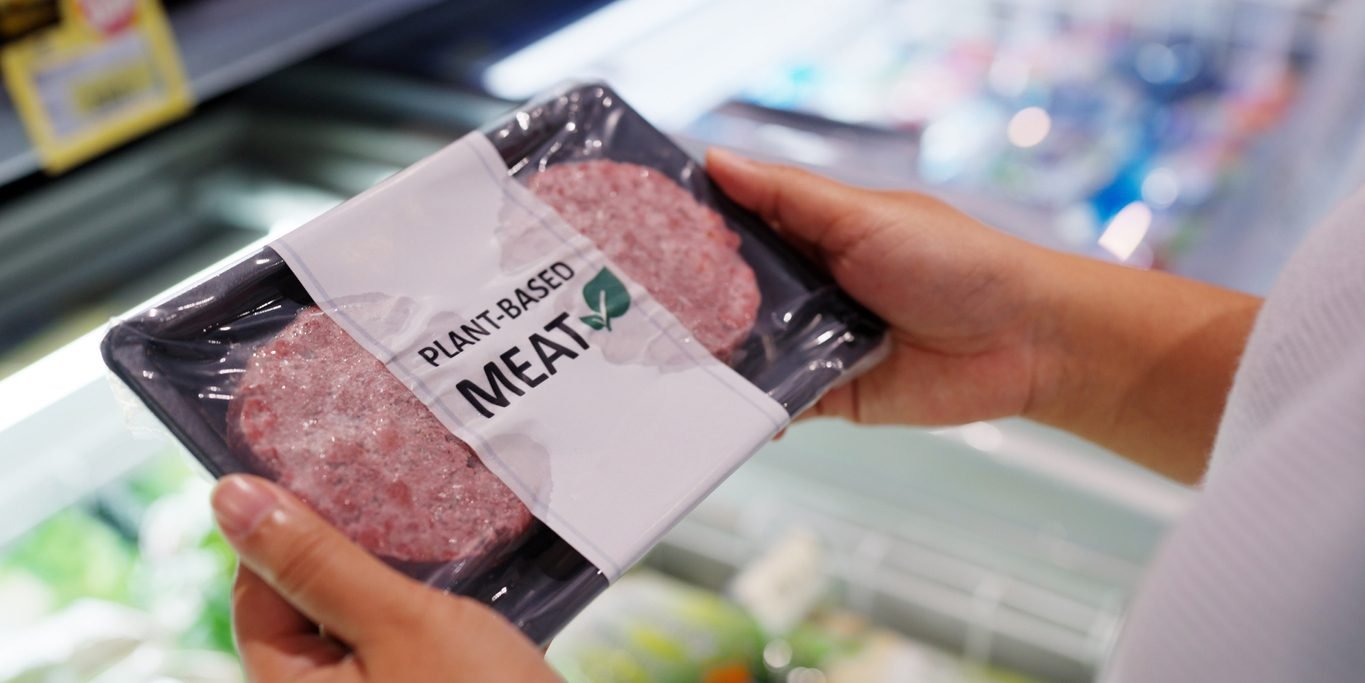Fake Meat - Why I’m not happy about it!
You know here at Natural Spoonfuls I preach that nature knows best and I am always promoting choosing Real Food > Packaged/Processed Food, meat is really no different.
A few months ago, I wrote about why meat IS good for you and hinted at the fact that fake meat is a no go for me and promised I would explain why, so here we go!!
It’s become super trendy to slap the word ‘vegan’ on food packaging and these days, more and more vegan food products are lining the supermarket shelves. BUT just because a product is ‘vegan’ does NOT make it healthy!
Don’t get me wrong, I totally support those who choose to follow a Vegan or Vegetarian diet, this article is not about changing your mind about that, it’s just about highlighting the misconceptions surrounding fake meat production and offering some alternatives!
Now, I’ve said it a million times, and I’ll keep saying it, please read the ingredients!
I have issues with fake alternative meats due to the monocrops and the contradiction involved as this actually goes against many ethical principles that vegetarians/vegans may be hoping to abide by. Fake meat products are often highly processed, contain inflammatory vegetable oils, unnecessary additives and are often genetically modified. Next time you’re at the shops turn over a packet of these fake meats… I bet you’ll say what the heck is in this!?
Welcome to a chemical cocktail of ingredients – lets discuss!!
Genetic Modification
Genetic modification of food, sometimes known as genetic engineering or GMOs for short refers to foods that have had their DNA changes using genes from other plants or animals. Essentially this means that food that has been genetically modified has been altered in a way that does not and cannot occur naturally. Doesn’t sound right does it?
Let me give you an example:
Impossible Beef Burgers are a fake meat product currently available on the market. Their tag line is ‘impossible beef made from plants’, however when you look at the ingredients list, that will tell you a different story… This brand has created this product to mimic the look, taste and texture of real meat, even down to the ‘blood like’ fluid that comes out of the burger when cooking. Here is the list of ingredients in one their product:
Water, Plant Protein (21%) (Soy), Sunflower Oil, Coconut Oil, Thickener (INS 461), Glutamic Acid, Natural Flavours, Cultured Dextrose, Modified Starch, Yeast Extract, Soy Leghemoglobin (genetically modified),Salt, Antioxidant (INS 307b), Vitamins and Minerals (Zinc Gluconate, Niacin (Vitamin B3), Thiamine Hydrochloride (Vitamin B1), Pyridoxine Hydrochloride (Vitamin B6), Riboflavin (Vitamin B2), Vitamin B12)
So, as we can see, along with all the vegetable oils, flavours and thickeners, there is an ingredient called leghemoglobin which has been genetically modified. This ingredient has been derived from soy and has been added to fake meat products to give them their ‘meaty’ flavour and texture. Sounds like it could be natural right? Wrong! Unlike traditional haem, found in real beef, leghemoglobin is mass-fermented in a lab by adding soy proteins and genetically engineered yeast. YIKES
Personally, this is enough reason for me to stay away from fake meats completely, but, if I haven’t fully convinced you let’s have a look at some of the other reasons!
Nutritional Value
The nutrition of fake meat vs real meat is not even closely comparable in nutritional value! Many fake meat companies will argue that their products are lower in saturated fat or sodium compared to traditional meat products, but this has nothing to do with the ‘healthiness’ of their product. This can be explained by the amount of chemical ingredients added to fake meat, controlling the nutritional value of the product.
Another thing to keep in mind when thinking about the nutritional components of fake meat vs real meat is that often when comparing the nutritional value, brands and companies are comparing their fake meat product to hot dogs, deli meats, sausages and hamburgers, which are all also processed foods so of course their vegan fake meat will appear healthier. It’s easy to do that when comparing your processed meat to other processed meats.
The protein and micronutrients such as iron we get from eating meat are incomparable to any fake meat alternative!
Flavours
I know we briefly touched on this above, but what actually makes those fake meats taste like the real deal? Artificial flavours, that’s what! Some companies have become a but sneaky in adding flavours to their ingredients list by including them as ‘Natural Flavours’ but be wary of plural ‘s’ at the end, which usually confirms a concoction of chemicals.
Usually, flavours are ingredients within an ingredient which gives us no idea of what is actually making up those flavours. Generally, these natural or artificial flavours are synthetic or made up of a group of chemicals (up to 100) to create the desired taste of a product. Check out my article all about flavours, and what they heck they actually are for some more info!!
Ultra-Processed Food
Ultra-processed foods (UPF) are something that have become more of a concern for health in the recent years. They have a multitude of health implications including increasing risk of obesity, cardiovascular disease, diabetes and even cancer. Common examples of UPF include soft drink, chips, chocolate, ice-cream, chicken nuggets, hot dogs etc.
When you consider the definition of processed foods it refers to products that undergo multiple processes, contain many added ingredients and are highly manipulated. Fake meat fits perfectly into this definition!
A lot of people tend to steer clear of foods when they are labelled as being highly processed, so why is fake meat any different, just because its ‘vegan’, I don’t think so!
So, when I am eating vegetarian protein sources, I opt for natural options such as non-GMO tofu/tempeh, legumes, lentils, chickpeas & seeds. If you have never really used these plant-based, natural options before or you’re just not too sure where to start I have heaps of delish recipes you can try:
Plus, HEAPS more!!
If you are following a vegan or vegetarian diet, I also recommend you read this article how to nourish when eating veg/vegan and I urge you to please seek support with a health professional to regularly test your levels and ensure you are meeting your required nutrient intakes.
Want more?
My Low Tox Food Program is my signature program and honestly my true passion. It will help you get back in touch with REAL food. I go through every food product imaginable, giving you the confidence that what you are adding to your shopping trolley is free of nasties, additives and is actually going to nourish your body.
After some more nourishment?
Check out these articles!
· Why choose Wild Seafood?
· It’s time you made the swap to Grass-Fed & Free-Range!
· How to Read Food Labels






